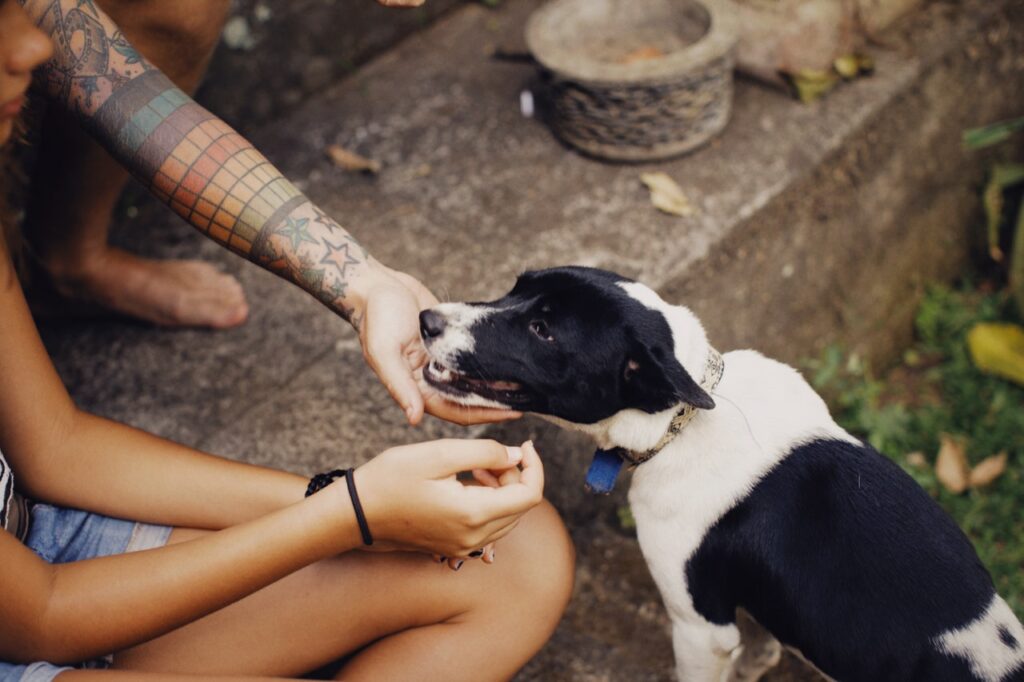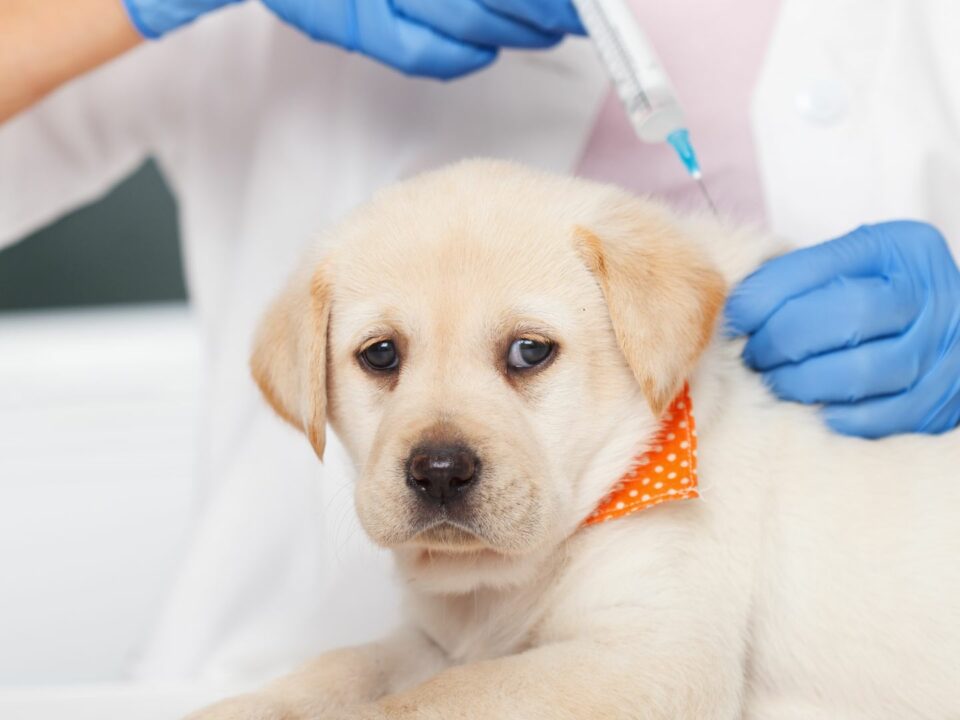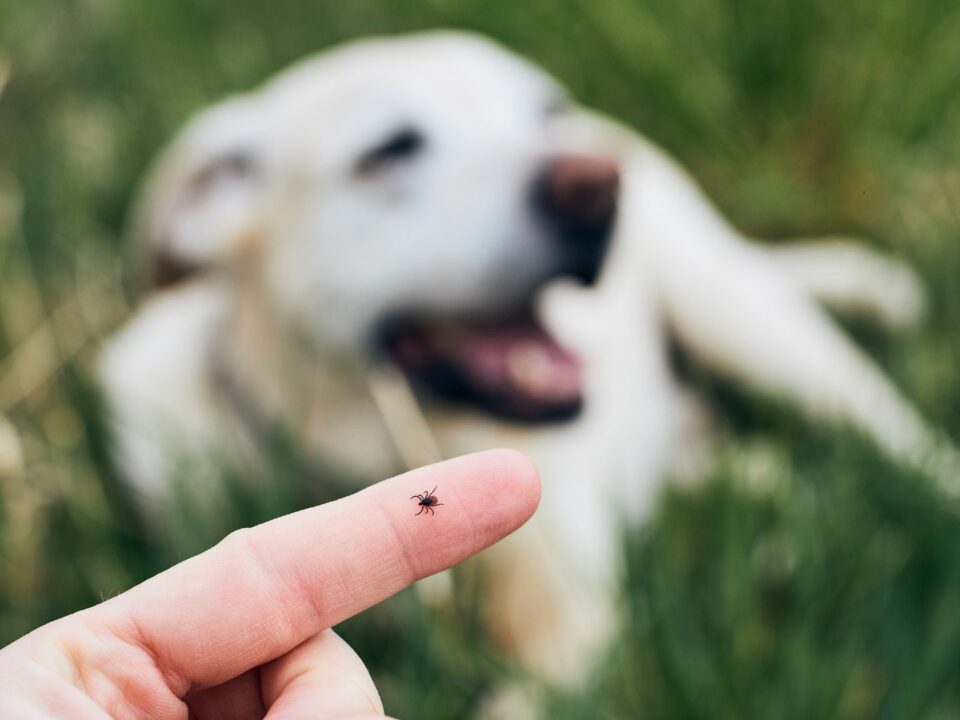
How to Best Care for Your Senior Dog – Age, Diet & Health Tips
December 30, 2022
How to Get Rid of Worms in Dogs
April 28, 20239 Signs your dog may have intestinal worms

As dog owners, we are inclined to make our dogs a part of the family. Bringing them inside, letting them sleep on the bed or couch and giving them kisses. But no matter how well cared for they are, your dog will probably pick up intestinal worms at some stage in its life.
Intestinal worms are a parasite that infect a dog’s intestines and feed off their blood and other nutrients. They can be very unpleasant for your dog, causing a number of symptoms which can make them sick. In some cases, infestations can even cause death. And some parasites can even be passed on to humans.
Here’s what you should know about intestinal worms in order to protect your precious pooch and your family.
How do you know if your dog has intestinal worms?
The symptoms of intestinal worms in dogs can vary a lot depending on the age and condition of your pet and the type of worm it’s infected with. Here are some of the most common signs to watch out for.
1. Itchy bottom
If you find yourself Googling, ‘Why is my dog scooting?’ it’s possible your dog has intestinal worms that are causing it to itch. Worms can make a dog’s anus itchy and rubbing his bottom across your floor is the only way to relieve the pain. However, this behaviour could also be down to a number of other medical conditions related to the anal glands, so it’s important to seek the advice of your vet if you notice your dog is irritated.
2. Visible signs of worms
Not all types of worms can be seen with the naked eye, so don’t rely on being able to see them in your dog’s faeces as a sign your dog has worms. However, sometimes pieces of worms can be seen in faeces and this definitely indicates your dog requires treatment. Flea tapeworm segments have the appearance of grains or rice, while roundworms resemble spaghetti.
3. Lethargy
Worms take blood and nutrients away from dogs, causing weakness and a lack of energy. So if your once playful pup is looking dog tired, it might be time to get him off to the vet. Worms can cause a decrease in the number of red blood cells, causing anemia, which can be life-threatening to pups.
4. Diarrhoea
Intestinal worms such as hookworm and whipworm can cause diarrhoea and soft stools in dogs. Prolonged diarrhoea can cause dehydration, which is serious in pets, particularly in a small breed. Diarrhoea can sometimes be bloody, a sign of blood loss which is another serious problem caused by worms, or the faeces may even be covered in mucus.
5. Vomiting
All types of worms can cause a dog to vomit. Sometimes worm segments or adult worms can be present in vomit, particularly in a puppy with a major infestation. If your dog does begin vomiting, it could lead to dehydration. There’s also the potential your pet could have another serious medical condition that is causing vomiting, so contact a vet as soon as possible.
6. Changes in appetite and weight loss
If your dog has gone off its food, is rapidly losing weight even when eating well, or has a sudden increase in appetite, it might have worms. Intestinal worms can also cause poor body condition and pale gums. In puppies, a worm infestation can additionally result in stunted growth.
7. Bloated stomach
A bloated, swollen or tender abdomen can indicate your dog has worms. It’s particularly noticeable in puppies, where it’s often referred to as ‘pot belly’. Worms can be passed from a mother during pregnancy via the placenta or during nursing.
8. Coughing
While coughing can be a sign of heartworms in a dog, it can also be caused by intestinal worms such as roundworms and hookworms. No matter the cause, a cough indicates your dog has a serious problem that should be seen to quickly.
9. Dull coat
A dog’s coat should be glossy, but if your pup has suddenly lost his shine, it could be a sign of worms. In addition to a dull, dry or thin coat, a rash or skin irritation is a signal your dog needs veterinary attention.

What causes intestinal worms in dogs?
- Ingestion
- Fleas
- Eating something they shouldn’t
- Through their skin
- From their mother
Ingestion
A worm can survive in the ground for several years, and it can be found anywhere another dog or animal has been in the past. Worms can even be carried by rodents.
Dogs can ingest worm eggs and larvae by sniffing contaminated dirt or grass or by licking worm eggs and larvae attached to their paws. Once inside their digestive system, eggs and larvae mature into adult worms, which can continue to lay eggs inside of your pet.
Fleas
A dog can get tapeworms by eating infected fleas. This is why it’s a good idea to deworm and treat your dogs for fleas simultaneously.
Eating something they shouldn’t
If your dog has eaten something you’d rather it hadn’t, such as a dead rodent, bird or another animal’s faeces, they could become infested with worms.
Through their skin
Dogs can pick up hookworms when larvae in their environment burrow into their skin and move into their intestine.
From their mother
It’s not uncommon for puppies to get worms from their mother via the placenta or her milk.
Intestinal worms in your dog can put your health at risk
If dogs lick their bottom and then you, they can pass on the parasites. People can also become infected by simply patting a pet that is infected. These parasitic infections can cause heart tissue inflammation or even blindness in young children.
So it’s a good idea to keep pets from defecating near children’s play areas and always wash your hands after playing with your pet to ensure you don’t ingest any eggs.
If you’ve just added a new addition to your family, the Rossmore Veterinary Hospital can give you all the information you need to know about caring for a puppy.
Common Types of Intestinal Worms that affect canines

- Hookworms – Severe infestations of hookworms can be fatal because they attach themselves to the intestinal wall to feed, causing blood loss.
- Roundworms – Roundworms are white, spaghetti-like worms that live in the intestinal tract and are easily transmitted from pets to people. Roundworm infestations are also common in puppies.
- Tapeworms – There are usually no symptoms of tapeworm infection in dogs, but again, they are quickly passed on to people. They look like tiny grains of white rice, and worm segments can sometimes be seen in faeces. Tapeworm is commonly contracted when dogs ingest infected fleas or offal (organs) of infected animals.
- Whipworms – Whipworms live in the large intestine, burrowing into the intestinal wall. Whipworm can cause severe illness and disease, especially in older dogs.
Diagnosing Intestinal Worms in Dogs
If you suspect your dog has worms that are causing it discomfort or other symptoms, you should have an examination with a vet as soon as possible.
In some cases, your veterinarian will diagnose a worm infestation by taking a stool sample and performing a faecal floatation test, which looks for worm eggs.
Depending on your dog’s age and general health and providing your pet’s symptoms are mild, your vet may suggest a simple treatment such as a deworming tablet. You can read our article on how to get rid of intestinal worms for more information.
Treatment and prevention of intestinal worms in dogs
Because intestinal worms can be easily transmitted to family members, giving your dog deworming medication every three months is important. They have few side effects and are easily bought over the counter.
Who to talk to about intestinal worms in your dog
Contact Rossmore Veterinary Hospital, who will answer any questions regarding your dog’s intestinal worms. We provide a wide range of services and can provide you and your dog with the best care.



